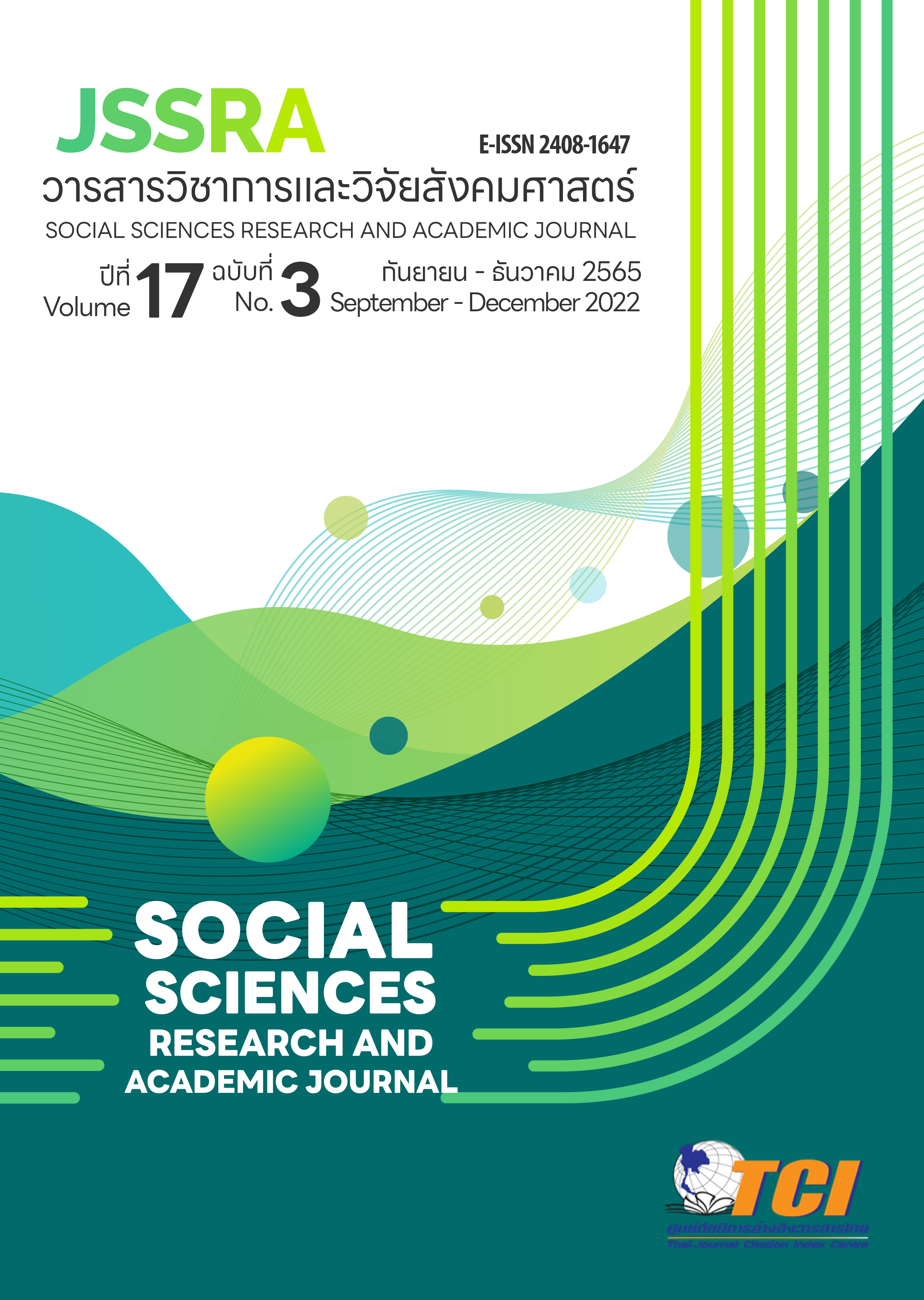การประเมินการจัดการเรียนการสอนออนไลน์ในรายวิชาเลือกภาษาอังกฤษของ มหาวิทยาลัยสงขลานครินทร์ วิทยาเขตสุราษฎร์ธานี An Evaluation of the Online Elective English Courses of Prince of Songkla University, Surat Thani Campus
Main Article Content
Abstract
The purposes of this study were to investigate students' satisfaction and online learning problems in English elective courses at Prince of Songkla University, Surat Thani campus. A mixed-methods approach was used to collect data. The questionnaire with a five-Likert scale was administered to 130 students who had enrolled in English elective courses. Of these, 20 students volunteered to be interviewed to obtain further information. Numerical data showed that the three categories with which participants were most satisfied were as follows:
(1) Course Objectives (=3.70), (2) Assessment and Evaluation (
=3.60), and (3) Teachers and Teaching Methods (
=3.60). The interview results provided further useful information about the participants' satisfaction with the English elective courses with should be taken into consideration to improve the English elective courses. This course evaluation research provides teachers with practical recommendations on enhancing their classes' teaching/learning circumstances, directly affecting students. The evaluation results assist the teachers in improving their teaching and aligning their courses and tests.
Article Details
References
มนาภรณ์ น้ำทอง และเยาวลักษณ์ วิสุทธิ์สิริ. (2559). การประเมินประสิทธิภาพการจัดการเรียนการสอนรายวิชาภาษาจีน. การประชุมวิชาการระดับชาติ มหาวิทยาลัยราชภัฏภูเก็ต ครั้งที่ 8 วันที่ 15 ธันวาคม 2559. 611-617.
บุญชม ศรีสะอาด. (2545). การวิจัยเบื้องต้น. กรุงเทพฯ: สุวีริยาสาส์น.
Berg, B. L. (1989). Qualitative research methods for the social sciences. Boston, MA: Allyn and Bacon.
Boonphak, K. (2020). Management of learning in the New Normal era. Journal of Industrial Education, 19(2), A1-A3.
Darwin, S. (2016). Student evaluation in Higher Education: Reconceptualising the student voice. Cham: Springer International Publishing.
Dudeck, M. (2000). Architecture of schools: The new learning environments, Architecture Press.
Mcmillan, J. H., & Schumacher, S. (1993). Research in education conceptual introduction. (3rd ed., 238-249). Harper Colling College Publishers.
Iris, B., Ragnhild, S & Torsten, R. (2021): Student course evaluation documents: constituting evaluation practice. Assessment & Evaluation in Higher Education, DOI:10.1080/0260238.2021.1899130
Merriam, S. B. (2009). Qualitative research: A guide to design and implementation. San Francisco, CA: Jossey-Bass.
Nyabero, C. (2016). Toward A Collective Approach to Course Evaluation in Curriculum Development, Acontemporary Perspective. Journal of Education and Practice, 7(35), 60–64.
Oxford, R.L., & Burry-Stock, J.A. (1995). Assessing the use of language learning strategies worldwide with the ESL/EFL version of the strategy inventory for language learning. System, 23(2), 153-175.
Patton, Q. M. (1987). How to use qualitative methods in evaluation. Newsbury Park, London, New Dehli: Sage Publications.
Patton, Q. M. (2002). Qualitative research & evaluation methods. (3 ed.). Thousand Oaks, CA: Sage.
Strauss, A., & Corbin, J. (1998). Basics of Qualitative Research: Techniques and Procedures for Developing Grounded Theory. Thousand Oaks, CA: Sage Publications, Inc.
Tasanameelarp, A., Girgin, T., Muangkaew, N., & Pengbun, C. (2017). Students’ Perceptions of English Language Teaching and Learning in Prince of Songkla University, Surat Thani Campus. Journal of Mahasarakham University Humanities and Social Sciences, 36(2), 15-25.
Weimer, M. (1990). Improving College Teaching. San Francisco: Jossey-Bass.
Weir, C., & Roberts, J. (1994). Evaluation in ELT. Oxford: Blackwell Publishers.
Worthen, B. R., & Sanders, J. R. (1973). Educational evaluation: Theory and practice. Worthington, Ohio: Charles A. Jones.


